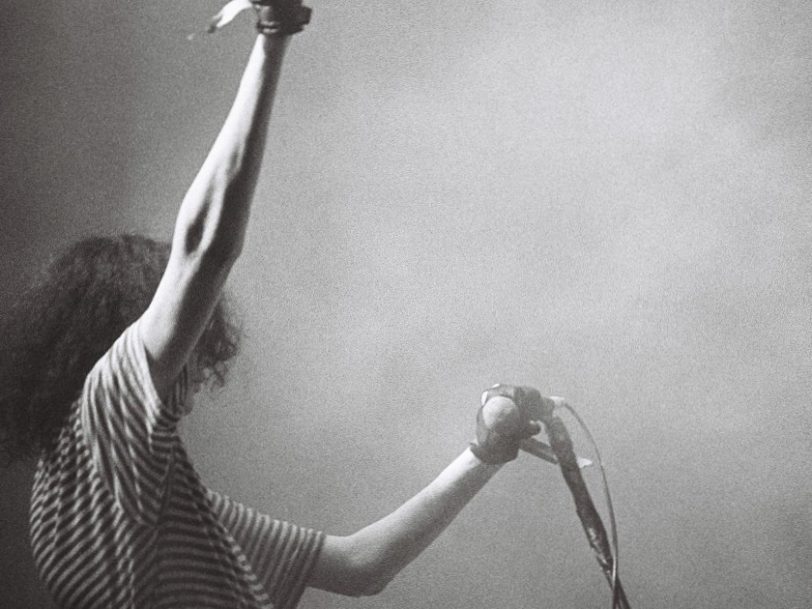Ramones never made any secret of the fact they were at a low ebb when they came to record their seventh album, 1983’s Subterranean Jungle. Even at their most victorious, the band were no strangers to dysfunctionality, but brudderly love was in particularly short supply at this stage of their career.
Listen to ‘Subterranean Jungle’ here.
“We weren’t talking at all”
“We’d reached the bottom at that point,” guitarist Johnny Ramone noted in a 2002 interview with journalist Gil Kaufman. “Between [previous album] Pleasant Dreams and Subterranean Jungle, we weren’t talking at all. I didn’t like Pleasant Dreams, it was too lightweight and pop for me. I wasn’t talking to Dee Dee at all, and I really needed him for his lyrics.”
Ramones weren’t helped by pop’s ever-changing trends in the early 80s. The New York City quartet’s role as punk trailblazers was widely acknowledged, but they were in danger of sounding anachronistic at a time when shiny, synth-based pop acts such as The Human League and A Flock Of Seagulls were making it big, and Michael Jackson’s all-conquering Thriller was about to explode on the Billboard chart. Yet the band’s appreciation of one contemporary hit helped shape the sound of their next record.
“I thought it was time for the Ramones to get on the radio”
“I don’t think I ever discussed it with the guys directly, but I think we all thought [Joan Jett & The Blackhearts’] I Love Rock ’N Roll was a really great song,” bassist Dee Dee Ramone revealed in the sleevenotes for the 2002 reissue of Subterranean Jungle. “It was cool it could get on American radio. I thought it was time for the Ramones to get on the radio, especially since we paid tribute to the same kind of bands that song did.”
In an attempt to conjure some similar anthemic magic, Ramones hired I Love Rock ’N Roll’s producers, Glen Kolotkin and Ritchie Cordell, to helm Subterranean Jungle. The producers even felt that recording in the same studio as The Blackhearts would help, but this forced the band to make the hour-long drive out Kingdom Sound Studio in Syosset, Long Island, on a daily basis. Some of their inner circle felt working this way was a disadvantage.
Kingdom Sound “had no vibe at all”, friend and future producer Daniel Rey said in 2002. “It was one of those early-80s studios with a receptionist with big, Bon Jovi hair, as opposed to a New York [City] studio with a history and a vibe. In Manhattan, [the group] didn’t have to be there all day, but Long Island meant they had to drive out and stay all day, which at that point in their relationship was not a good thing.”
“I didn’t want to tell the band about being in rehab”
As Rey hinted, most of the group were dealing with personal problems, and these eventually claimed drummer Marky Ramone, whose alcohol-related issues caused the band to fire him towards the end of the Subterranean Jungle sessions.
“I was lying on my bed, watching Kojak, when Joey calls me and says, ‘Mark, I feel bad about this, but, uh, you can’t be in the band anymore,’” Marky recalled in Mickey Leigh’s I Slept With Joey Ramone. “If it was today, Joey would’ve said, ‘Why don’t we take off for a month while you get sober?’ But I didn’t want to tell Joey or the band about my being in rehab, because I would’ve been admitting my guilt.”
The story had a happy ending for Marky, who dried out successfully and rejoined Ramones in time for 1989’s Brain Drain. Despite his personal issues, his drumming was as powerful as ever during the Subterranean Jungle sessions, and he featured on all the album’s songs, barring an edgy cover of The Chambers Brothers’ Time Has Come Today.




